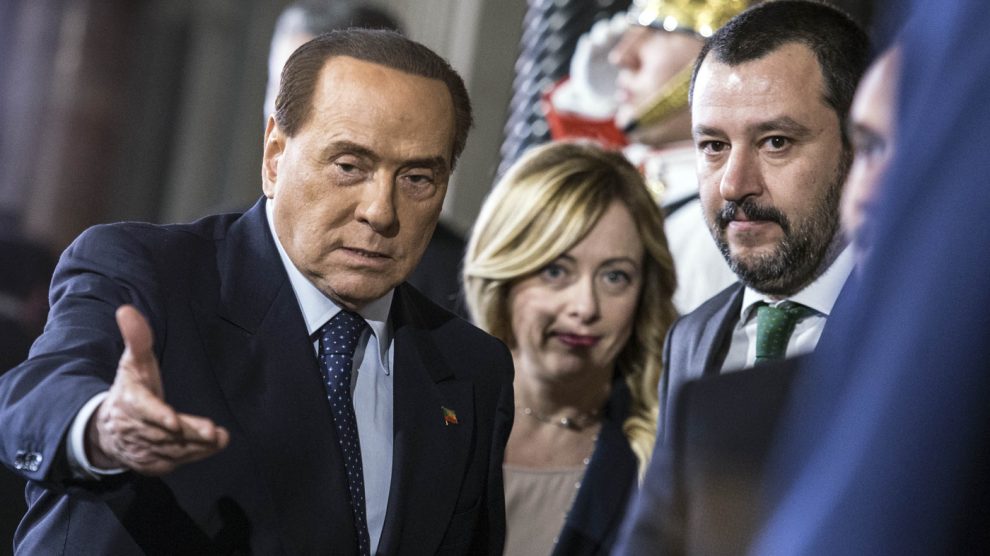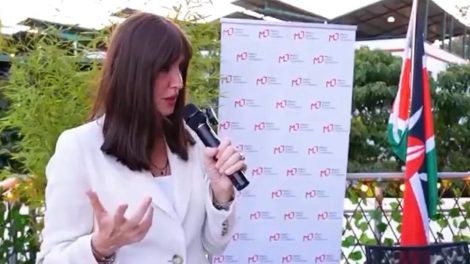Silvio Berlusconi’s European vision. “I believe that a European centre-right, similar to the Italian one, with the Populars, Liberals, Conservatives and other democratic centre-right forces, is a goal worth working towards.”
- With this tweet, the President of Forza Italia (FI) and partner of the Italian governing majority gave new vigour to his long-running project of fostering new alliances for the European People’s Party (EPP), FI’s European group.
A matter of numbers. There have long been talks of a growing entente between the leaders of the EPP and the European Conservatives and Reformists (ECR), the European group headed by Italian Prime Minister Meloni. Some within the EPP are wary of the ECR’s conservative tilt, but others recognise it as a natural, up-and-coming partner.
- The latters may include Roberta Metsola, leading EPP member, President of the European Parliament and possible contender for the top job at the European Commission.
- The EPP has been steadily losing power in European capitals, going from 17 affiliated State leaders in 2014 to just 7 in 2021.
- Meanwhile, Ms Meloni’s electoral success in September and consistent approval rating indicate that conservative parties in Italy – and elsewhere in Europe – might regain ground in the 2024 elections.
From Merkel and Macron… So far, the EPP – which is still the biggest group in the European Parliament – has been mostly dealing with parties to its left, such as Renew Europe (the Liberals mentioned by Mr Berlusconi) and the Socialists and Democrats (S&D), to pass laws.
- On the one hand, this framework resembled the German Grand Coalition between Angela Merkel’s Christian Democrats (CDU, part of the EPP) and Olaf Scholz’s Social Democratic Party (SPD, part of S&D).
- On the other hand, via its entente with Emmanuel Macron’s Renew Europe, it also reflected the Franco-German relation that has shaped much of the EU’s politics.
… to a shift in the balance of power. In Italy, the third-biggest European country by population, voters have been tilting to the right. That trend is projected to translate into rightwing parties gaining more European Parliament seats in the 2024 elections – and some polls indicate that Ms Meloni’s emerging ECR group might become Europe’s second-biggest.
- Also, Italy’s leftwing parties have swung further left – as exemplified by Elly Schlein’s election at the head of the Democratic Party (part of S&D) – and farther away from the moderate conservatism of the EPP.
- Meanwhile, the Italian incarnation of Renew Europe – Carlo Calenda and Matteo Renzi’s Third Pole – is working to create a stronger point of reference for Italian liberals and further its detachment from the Democrats, thus creating chances of cooperation with the centre-right.
An Italian crystal ball. Suppose the Italian dynamic translates to votes in the 2024 European elections. Meanwhile, President Macron continues to lose consensus in France, thus morphing Renew Europe into a smaller force in the next European Parliament. Chances are the EPP would find a more ideologically aligned and powerful partner in the ECR to define Europe’s next majority.
- That’s also true for the Italian liberals and Renew Europe, who might ditch a weakening political left both in Italy and Europe to partner up with moderate and conservative forces in the European Parliament.
The Salvini wildcard. Beyond Ms Meloni’s Brothers of Italy (BoI) and Mr Berlusconi’s FI, the current Italian majority also features Matteo Salvini’s League. That’s a member of the Identity and Democracy (ID) group in Europe, which remains a variable.
- The ID group has long sympathised with Viktor Orbàn’s party Fidesz, which fled the EPP before being kicked out.
- It also includes Alternative for Germany (AfD), which the CDU/EPP is unlikely to accept as an ally – both in Berlin and Strasbourg.
- Thus, it might be hard for the League to create a functioning engagement with the EPP.





